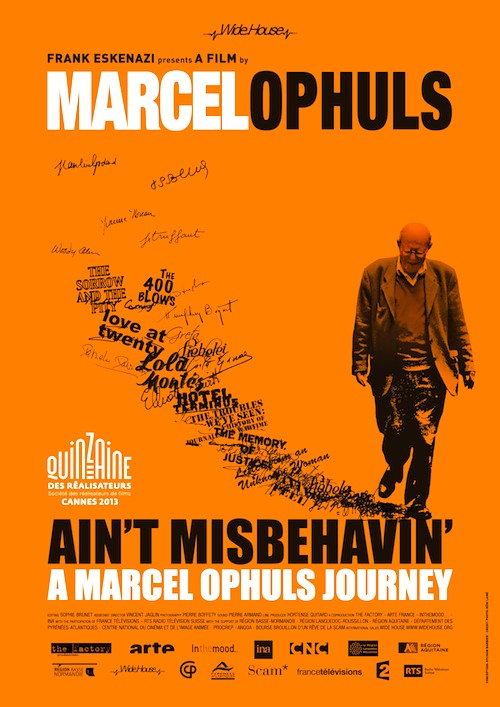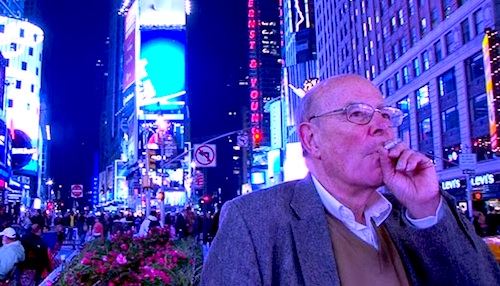 By Joe Bendel. You might not expect Fats Waller to provide the theme song for the docu-memoir of Marcel Ophüls, the director of The Sorrow and the Pity. However, those who closely followed the filmmaker’s career know he had already used Waller’s rendition of Irving Berlin’s “Waiting at the End of the Road” as the opening music for his Northern Ireland documentary, A Sense of Loss. Ophüls just liked Waller. Viewers will learn a few more things about Ophüls when he turns the camera on himself in Ain’t Misbehavin,’ which screens during the 2014 New York Jewish Film Festival.
By Joe Bendel. You might not expect Fats Waller to provide the theme song for the docu-memoir of Marcel Ophüls, the director of The Sorrow and the Pity. However, those who closely followed the filmmaker’s career know he had already used Waller’s rendition of Irving Berlin’s “Waiting at the End of the Road” as the opening music for his Northern Ireland documentary, A Sense of Loss. Ophüls just liked Waller. Viewers will learn a few more things about Ophüls when he turns the camera on himself in Ain’t Misbehavin,’ which screens during the 2014 New York Jewish Film Festival.
As the son of Max Ophuls, filmmaking is in Marcel Ophüls’ blood. It also meant he was born Jewish in Weimar Germany. In Misbehavin,’ his most dramatic recollections chronicle the family’s life in exile, spanning France, Switzerland, Spain, and eventually America. While Ophüls generally hopscotches from subject to subject as the mood strikes him, he gives his formative war years the focus they merit.
The rest of the film is a mixed bag, but there is plenty of interesting bits for film lovers to chew on. Ophüls’ encounter with the sixty year old (but apparently still sultry) Marlene Dietrich turns out to be everything you would hope. There is also plenty of good Hollywood dish on Preston Sturges and Howard Hughes, from the perspective of the senior Ophüls. Strangely, he only revisits his own films obliquely, rather than in-depth. Nonetheless, Misbehavin’ helps put his controversial war crimes film The Memory of Justice into perspective. Commissioned by German television, it is controversial for equating American military operations in Viet Nam with National Socialist genocide. According to the director, he tried to avoid such “relativism,” but control of the picture became contested and a version not authorized by Ophüls aired in Germany.

Ophüls often acknowledges his tribulations in passing asides that leave inevitable questions dangling in mind air (like, “what did he just say about his suicide attempts?”). Yet, perhaps the strangest sequences involve a suspected affair between his wife, Régine (still living, but not talking) and his dear friend, François Truffaut. Ophüls even puts the question to Jeanne Moreau, in an interview she seems to find just as baffling as the audience.
There is probably more of Ophüls sauntering about in Misbehavin’ than anyone really needs and it starts slower than molasses. Nonetheless, the documentary provides a unique first-hand perspective on Golden Age Hollywood, the Nouvelle Vague, and WWII. It also proves he has good taste in music. Recommended for fans of either Ophüls, Ain’t Misbehavin’ screens twice this coming Wednesday (1/8) at the Walter Reade Theater, as part of this year’s NYJFF, co-presented by the Jewish Museum and the Film Society of Lincoln Center.
LFM GRADE: B
Posted on January 6th, 2014 at 11:12pm.